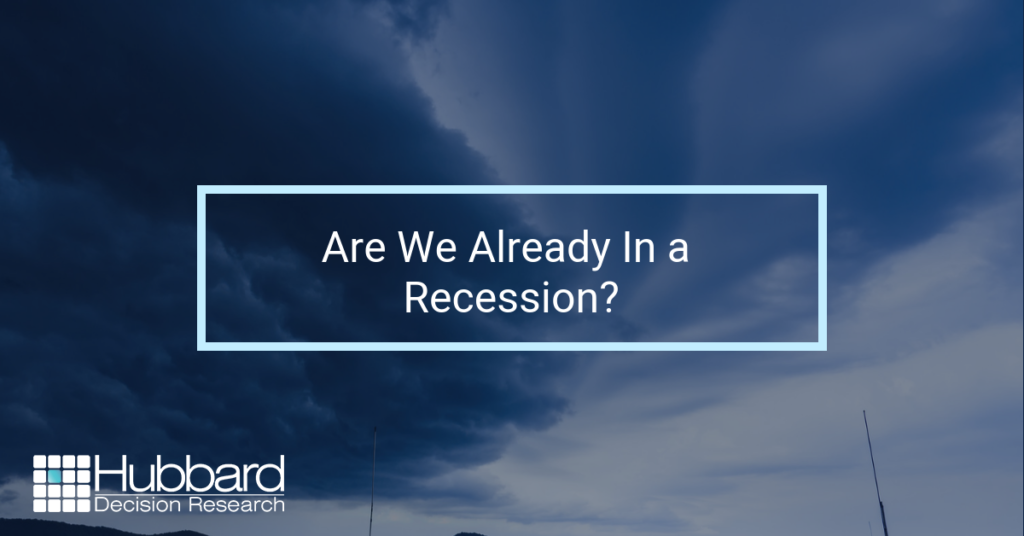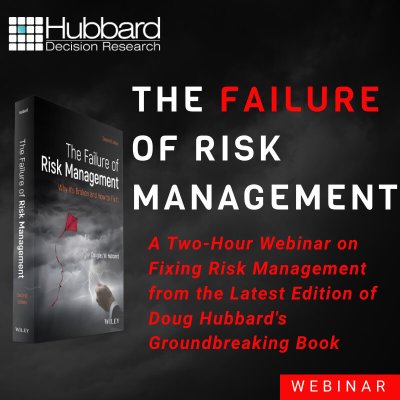
Overview:
- Fears of a recession are rising as experts attempt to predict when a recession will officially occur
- Forecasting a recession, for most practical purposes, is irrelevant to decision-makers
- Decision-makers need to ask the right questions that will help them mitigate the risk a recession poses
A Google search of “risk of recession” uncovers a treasure trove of prognostication, hand-wringing, and dire predictions – or sneering dismissals – involving whether or not the U.S. economy will soon take a nosedive.
“Global Recession Will Come In 9 Months if Trump Takes This One Step, Morgan Stanley Argues,” from MarketWatch; “Global Recession Risks Are Up, and Central Banks Aren’t Ready,” from The New York Times; “Current U.S. Recession Odds Are the Same as During ‘The Big Short’ Heyday,” from Forbes; all of these articles reflect one of the nation’s most present fears: that the economic wave we’ve ridden for the past 8 years will soon crest, then crash onto the beach.
It’s surely a worrisome time. Even though the economy appears to be going strong – unemployment is still low, credit spreads are stable, etc. – there’s a tremendous amount of uncertainty when it comes to what the economy will do. If we knew when the recession would hit, we’d be able to do something about it, although “do something” is vague and means different things for different people and, frankly, we as a nation aren’t particularly good at knowing what that “something” is, let alone doing it.
Throw in the fact that the formal announcement of a recession always lags when the recession actually began, and our need to be able to predict the expected downturn only grows.
But two things are very possible, maybe even probable:
- The recession has already begun; and
- Asking when the recession will happen is completely irrelevant.
It Doesn’t Matter If We’re In a Recession Right Now
If a time traveler came to you from ten years from now and told you that this day marked the official beginning of the Great Recession Part 2: Judgment Day (or whatever clever name economic historians will bestow on it), would it make a difference?
Probably not, because it would be too late to take actions to avoid the recession, since it’s already here.
But even if the time traveler instead said that the recession would start three months from now, or six months, or 12 months, would that make a difference? Possibly – but it’s also very possible that the economic risks that collectively cause and make up a “recession” have already started impacting your business.
And if you knew that the recession was six months down the road, maybe you put off taking the actions that you need to take today (or needed to take X months ago) in order to mitigate the damage your organization could incur.
No matter how you slice it, asking “When will we be in recession?” or “Are we already in a recession?” is not only mostly irrelevant, but also largely counterproductive because it takes our focus off what we should already be doing: asking the right questions.
Questions we should ask instead are:
- What impact will a recession actually have on my organization?
- What specific economic risks are most likely for me?
- When would these risks start impacting my organization? Can I tell if they already have?
- What can I do today to mitigate these risks as much as possible?
All of these questions are completely independent and not reliant on knowing when a recession will happen. Remember, what constitutes a recession is completely arbitrary. It’s also one broad term for dozens of individual risks that tend to happen in clusters during recession periods but may all begin or end at wildly different times, and have different severity.
Developing answers to the above questions is far more productive than trying to discern when the recession will happen by reading news articles, watching percentages go up and down on TV, or hiring shamans to study chicken entrails. If you can find those answers, you’ll be far ahead of the curve and increase your chances of being in the minority of organizations that not only weathers economic downturns, but actually grows during them.
Recent Posts:
- Revolutionizing Agricultural Productivity: Project Prioritization in Crop Science
- Strengthening Financial Fortresses: Transformative Cybersecurity Workshops in Banking
- Revolutionizing Risk Management in the Insurance Sector Through Cybersecurity Assessment
- Optimizing IT Infrastructure for Enhanced Banking Performance
- Optimizing Prices for Project Bids
Recommended Products:


